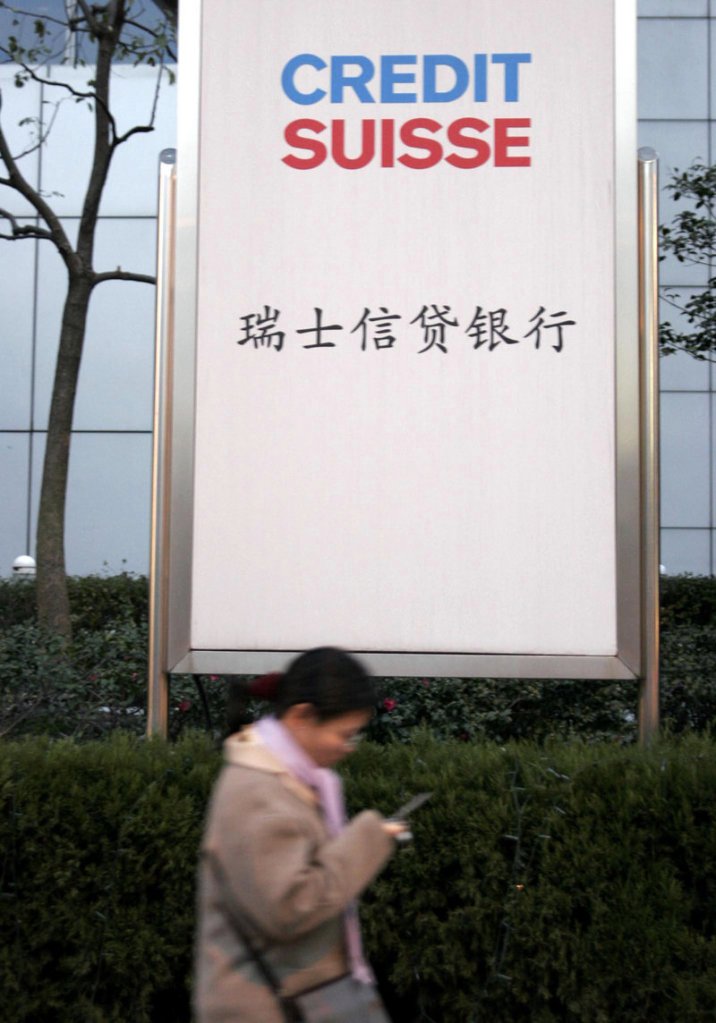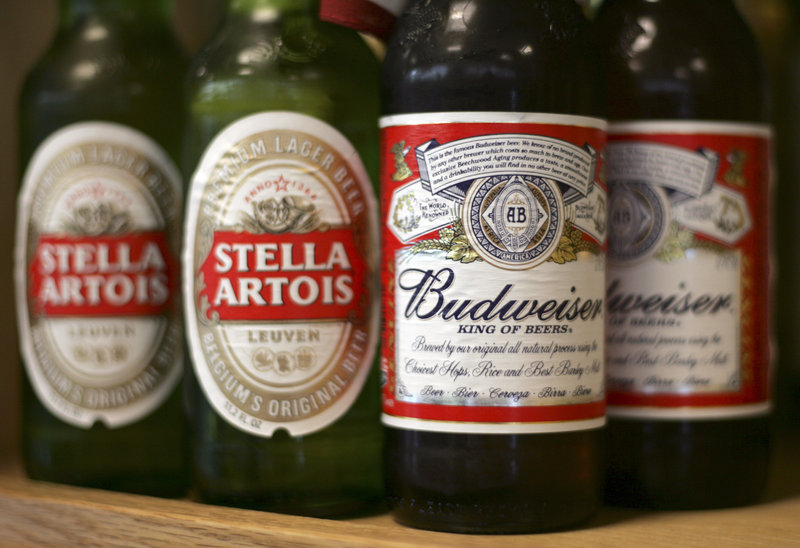As Democrats and Republicans spar over whether foreign money is polluting the midterm elections, a simple point is often overlooked: Hundreds of foreign corporations already play an integral and perfectly legal role in American politics through their U.S. subsidiaries.
Political action committees connected to foreign-based corporations have donated nearly $60 million to candidates and parties over the past decade, including $12 million since the start of 2009, federal contribution records show. Top donors in this election cycle include PACs tied to British drugmakers GlaxoSmithKline and AstraZeneca, which together account for about $1 million; Belgium’s Anheuser-Busch InBev, at nearly $650,000; and Credit Suisse Securities, at over $350,000.
The donations must come from U.S. citizens or residents, and they make up a small fraction of overall political giving. Nonetheless, the role of foreign companies and their U.S. subsidiaries has become particularly sensitive in this year’s midterm campaigns, which have featured widespread voter dismay over the economy and eruptions of anti-foreign rhetoric from both parties.
Democrats have made a campaign issue over speculation that the U.S. Chamber of Commerce is using foreign dues to help pay for a $75 million pro-Republican ad campaign, a charge the organization denies. White House adviser David Axelrod, appearing on CNN’s “State of the Union” on Sunday, attempted to shift the thrust of the criticism to the more general issue of undisclosed donors.
But neither Democrats nor Republicans have drawn attention to PACs linked to global companies, a source of campaign funds that benefits both parties.
U.S. subsidiaries of foreign companies generally favored Republicans during the George W. Bush administration but have shifted the tilt of PAC contributions to Democrats since Barack Obama took office, according to a Washington Post analysis.
Overseas companies have a vigorous lobbying presence in Washington, and many of them played a prominent role in derailing Democratic campaign finance legislation that would have limited their U.S. political activities. The bill, blocked by Senate Republicans, would have classified more multinationals as foreign entities and, in early drafts, could have prevented them from having PACs.
More than a dozen foreign-connected companies, including subsidiaries of Germany’s BASF Corp. and Switzerland’s UBS Americas, registered to lobby against the legislation, records show.
The legislation came in reaction to a Supreme Court decision that eased restrictions of corporate political spending and raised the possibility that foreign companies might claim similar rights. That issue lies at the heart of unsubstantiated allegations that the Chamber of Commerce may be commingling foreign dues with political funds. The business group denies the charges, saying they are part of a White House-led “smear campaign.”
Democrats have ratcheted up their attacks on Republican candidates and business groups for supporting policies that they say encourage multinational companies to move jobs overseas. Republicans and their allies have responded with campaign ads alleging that the Democratic-backed stimulus bill had the effect of creating jobs in China and other countries, a claim disputed by the Obama administration.
Despite the bluster, records make clear that both parties benefit from contributions from U.S. companies with roots in other countries.
One of the leading contributors to federal candidates among U.S. subsidiaries is BAE Systems, the Virginia-based arm of the British defense and aerospace company. Records show BAE’s PAC has given nearly $600,000 to candidates in this cycle, with 55 percent going to Democrats. Top recipients include Sen. Kirsten Gillibrand, D-N.Y., whose state includes many BAE employees, and Sen. Richard Burr, R-N.C., of the intelligence, armed services and veteran affairs committees.
“The PAC supports candidates who demonstrate a commitment to the defense and security of our country, as well as science, technology, education and math,” said Clark Dumont, BAE’s vice president of communications.
Officials with other subsidiaries declined to comment or offered general defenses of their U.S. activities.
Steve Goldberg, a U.S. vice president for BASF, said the company’s PAC “assesses candidates on the basis of their positions on key issues, relationship to BASF sites and standing on committees or congressional leadership positions of relevance to our business.”
“The PAC is bipartisan and regularly supports candidates of both parties,” Goldberg added.
Major global health-care companies are well-represented at the top of the contributions list, including Novartis Corp. of Switzerland and Bayer Corp. of Germany. Defense and energy companies such as Rolls-Royce, Siemens and EADS also rank high.
The rules governing U.S. subsidiaries of overseas corporations are relatively clear. No foreign nationals can contribute to company PACs, nor can they be involved in deciding how the money gets allocated. Employees of U.S. subsidiaries are as free as any other citizens to participate in politics, including contributing to their employer’s political committee.
Foreign-based companies employ more than 5 million Americans in areas such as health care, defense and finance, including tens of thousands of Chrysler employees who now work for Italy’s Fiat, according to federal data.
“Millions of Americans work for foreign-owned corporations, and I don’t think anyone thinks they should have less rights than anyone else,” said Stefan Passantino, a GOP campaign finance lawyer at McKenna Long & Aldridge.
Copy the Story Link
Send questions/comments to the editors.




Success. Please wait for the page to reload. If the page does not reload within 5 seconds, please refresh the page.
Enter your email and password to access comments.
Hi, to comment on stories you must . This profile is in addition to your subscription and website login.
Already have a commenting profile? .
Invalid username/password.
Please check your email to confirm and complete your registration.
Only subscribers are eligible to post comments. Please subscribe or login first for digital access. Here’s why.
Use the form below to reset your password. When you've submitted your account email, we will send an email with a reset code.